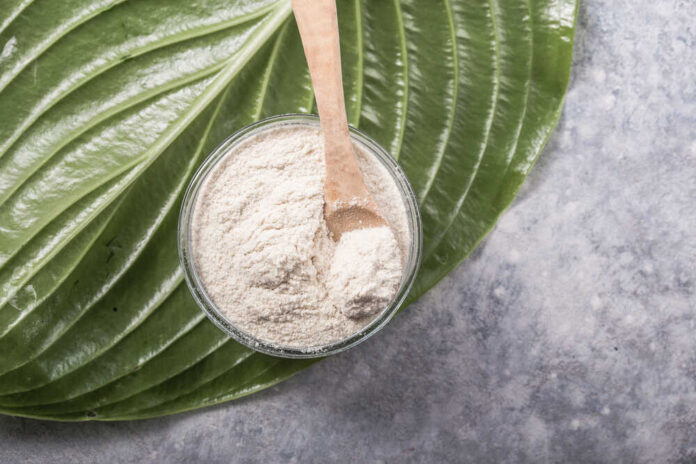
Collagen is a protein found in the bodies of mammals. It is a key component of skin, bones, tendons, and other connective tissues and is responsible for providing strength and elasticity to these structures.
As we get older, our bodies tend to synthesize less collagen. This leads to many of the visible signs we associate with aging—wrinkles, sagging skin, and a duller complexion.
Because of this, collagen has become a popular ingredient in dietary supplements and skincare products, with many people turning to collagen supplements as a way to improve the health and appearance of their skin, hair, and nails.
What is Collagen, and Where Does it Come From?
Collagen is the most abundant protein in the body, accounting for approximately 30% of the total protein content.
Collagen is a triple helix structure, meaning that it consists of three long, spiraling chains of amino acids that are twisted together. These chains are held together by strong covalent bonds, giving collagen its strength and elasticity.
When you eat meat, fish, or bone broth, you are consuming collagen from the animal’s connective tissues. In these products, the collagen is broken down into individual amino acids, which can then be used by the body to build its own collagen.
But for vegans and those who follow a plant-based diet, consuming animal-derived collagen may not be an option.
Collagen Supplements
Collagen supplements are typically made by extracting collagen from animal sources, such as cow hides, pig skin, and fish scales. This process involves boiling the animal tissues to release the collagen, which is then purified and processed into supplements or used in other products.
However, since more and more people are adopting a vegan or plant-based diet, you may have seen a new supplement product on the shelves: vegan “collagen boosting” supplements. They may also be labeled as “collagen restoring” or “collagen protecting” supplements.
These supplements do not actually contain collagen, but instead contain a blend of vitamins, minerals, and amino acids that are said to support the body’s own natural collagen production.
Do Vegan Collagen Boosters Work?
The effectiveness of vegan collagen boosters is a topic of debate among experts. Some studies have shown that certain vitamins and minerals, such as vitamin C, play an important role in collagen synthesis.
However, there is limited research available on the effectiveness of vegan collagen boosters.
Your body’s ability to synthesize collagen is influenced by many factors, including age, genetics, lifestyle, and diet. As such, even with the consumption of vegan collagen boosters, it may not be possible to achieve significant results in terms of improved skin, hair, and nail health.
Additionally, the body’s ability to absorb and use the vitamins and minerals in these supplements is not well understood, and more research is needed to determine their efficacy.
Collagen From Bacteria
With the rise of biotechnology, researchers have discovered a way to produce collagen using genetically modified bacteria.
This process involves inserting genes that encode for collagen into a bacterial cell. The genetically modified bacteria are then cultured in large bioreactors under controlled conditions. The bacteria produce and secrete collagen, which can be harvested and purified for use in various applications, such as medical implants, cosmetics, and dietary supplements.
Using genetically modified bacteria to produce collagen offers several advantages over traditional animal-based methods. It is a more sustainable and efficient method, as the bacterial cells can be rapidly multiplied, and the collagen can be produced in large quantities.
Whether collagen produced from genetically modified bacteria is considered vegan depends on individual beliefs and definitions of veganism. Some vegans may consider this form of collagen to be acceptable, as it is not derived from animal sources and does not involve the exploitation or harm of animals.
However, other people may refuse any form of biotechnology that involves genetic modification, even if animals are not in any way involved.






















